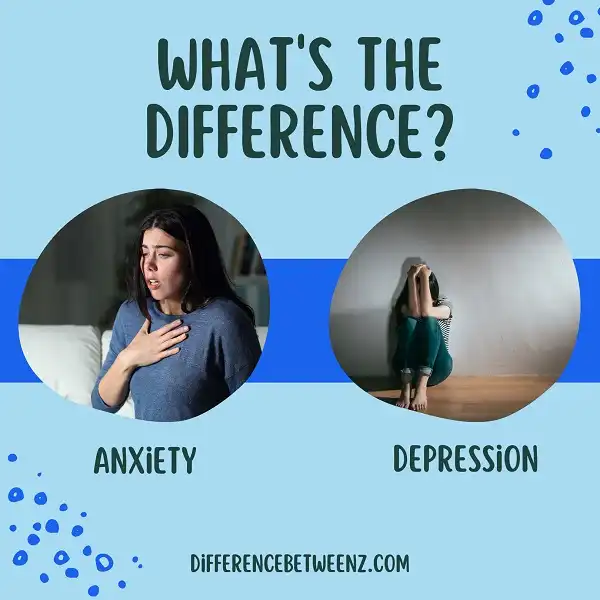Anxiety vs. Depression
Difference between Anxiety and Depression: – Both anxiety and depression are medical conditions with which every day more people have to learn to live. The causes of both are not entirely clear, however, there is no doubt that both genetic and environmental factors can contribute to the development of them. While it is not uncommon for these two conditions to be confused, those who are not aware of these problems may have doubts about what the difference is between depression and anxiety.
If you also have doubts about it or just search for a little more information that serves to complement what you already know, then continue reading, here we will explain the difference between anxiety and depression.
What is the Difference between Anxiety and Depression
Anxiety
The anxiety comes in response to an (internal or external) stressor and episodes can be short – lived, it may even manifest itself in people considered healthy.
People are anxious when they are stressed, for example, when they have to take a test or give an interview; however, there are cases in which the stressor is not so obvious and the anxiety becomes persistent.
It can be described as a feeling of worry, fear and insecurity; which can be rooted in any event that makes the individual feel frustrated, angry or nervous. In small doses, anxiety is normal, useful and even healthy because it keeps the person alert so that he can deal with what causes stress. Usually, once the stressor is gone the anxiety goes with it; but it is not always so and when it does not happen this way, and then it is likely to be an anxiety disorder.
There are several types of anxiety, including: existential anxiety, test anxiety and performance, social anxiety, generalized anxiety, among many more.
The most common symptoms when this problem becomes a medical condition are: increased blood pressure, omitted heartbeats, rapid breathing, cold sweat, nausea, tremors and dizziness. If anxiety worsens, then other symptoms such as diarrhea, increased urination, dry mouth, and trouble swallowing may occur.
It is common for people with serious anxiety problems to also experience depression. Major changes in life can trigger anxiety episodes, such as a marriage or divorce, moving, a new job, having a child, among other things.
Depression
On the other hand, depression is defined as a state of decay and aversion to activities that were previously pleasurable; in many cases it may include feelings of deep sadness, however, not in all people appears the same.
The most common cause of depression is a biochemical imbalance in the brain that intervenes with the ability of nerve cells or neurons to communicate with each other. These cells communicate through neurotransmitters, which are largely responsible for maintaining people’s moods. When there is a deficiency in these chemicals, the person experiences depression.
Finally, there are several types of depression, for example: clinical depression, chronic depression, atypical depression, bipolar, seasonal and psychotic depression. Some sufferers should even take medications to control the imbalance.


